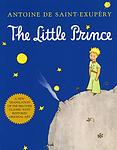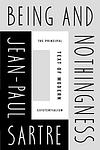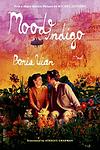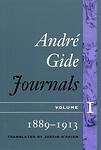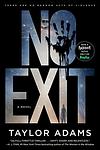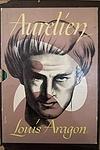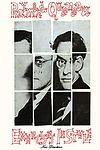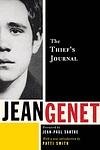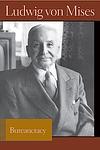The Greatest French, Austrian Books From 1940 to 1949
Click to learn how this list is calculated.
This list represents a comprehensive and trusted collection of the greatest books. Developed through a specialized algorithm, it brings together 290 'best of' book lists to form a definitive guide to the world's most acclaimed books. For those interested in how these books are chosen, additional details can be found on the rankings page.
Genres
Countries
Date Range
Reading Statistics
Click the button below to see how many of these books you've read!
Download
If you're interested in downloading this list as a CSV file for use in a spreadsheet application, you can easily do so by clicking the button below. Please note that to ensure a manageable file size and faster download, the CSV will include details for only the first 500 books.
Download-
1. The Stranger by Albert Camus
The narrative follows a man who, after the death of his mother, falls into a routine of indifference and emotional detachment, leading him to commit an act of violence on a sun-drenched beach. His subsequent trial becomes less about the act itself and more about his inability to conform to societal norms and expectations, ultimately exploring themes of existentialism, absurdism, and the human condition.
-
2. The Little Prince by Antoine de Saint-Exupéry
A young prince from a tiny asteroid embarks on a journey across the universe, visiting various planets and meeting their strange inhabitants. Along the way, he learns about the follies and absurdities of the adult world, the nature of friendship, and the importance of retaining a childlike wonder and curiosity. His journey eventually leads him to Earth, where he befriends a fox and learns about love and loss before finally returning to his asteroid.
-
3. The Second Sex by Simone de Beauvoir
This influential work explores the treatment and perception of women throughout history, arguing that women have been repressed and defined only in relation to men. The author presents a detailed analysis of women's roles in society, family, work, and in the creation of their own identities. She discusses the concept of 'the other' and how this has been used to suppress women, while also examining the biological, psychological, and societal impacts of this oppression. The book is a seminal text in feminist theory, challenging traditional notions of femininity and calling for equality and freedom for women.
-
4. The Plague by Albert Camus
The novel is set in the Algerian city of Oran during the 1940s, where a deadly plague sweeps through, causing the city to be quarantined. The story is told through the eyes of a doctor who witnesses the horror and suffering caused by the disease. The narrative explores themes of human resilience, solidarity, and the struggle against the absurdities of life. It also examines how individuals and society respond to death and disease, creating a profound meditation on the nature of existence and human endurance.
-
5. Death of Virgil by Hermann Broch
The novel explores the final hours of the Roman poet Virgil, who, while on his deathbed, contemplates the value and impact of his life's work, particularly his unfinished epic, the Aeneid. The narrative is a complex, stream-of-consciousness meditation on art, life, and death, with Virgil wrestling with his desire to burn his epic and the emperor's command to preserve it. The book delves into themes of the meaning of human existence, the role of art in society, and the clash between the individual's inner world and the external world.
-
6. Man's Search for Meaning by Victor Frankl
This book is a memoir written by a psychiatrist who survived the Nazi concentration camps during World War II. The author shares his experiences in the camps and his psychological approach to surviving and finding meaning amidst extreme suffering. He introduces his theory of logotherapy, which suggests that life's primary motivational force is the search for meaning, and argues that even in the most absurd, painful, and dehumanized situation, life can be given meaning.
-
7. Being and Nothingness by Jean Paul Sartre
This philosophical work delves into the concept of existentialism and phenomenology, offering an in-depth analysis of human consciousness and existence. The author argues that we are all essentially free and responsible for our actions, and that we construct our own identities through our actions and interactions with others. The book also explores the idea of 'nothingness' and 'bad faith', suggesting that we often deny our freedom and hide from the responsibility of our actions, leading to a life of inauthenticity.
-
8. The Myth of Sisyphus by Albert Camus
This book is a philosophical essay that explores the concept of absurdity, and how individuals should respond to life's inherent meaninglessness. It posits that life is essentially absurd due to the conflict between our desire for understanding and the chaotic, indifferent universe. The author argues that the only proper response to this absurdity is to live life to its fullest, embracing and rebelling against the absurdity, rather than resorting to suicide or turning to religion or philosophy for false comfort. The story of Sisyphus, condemned to eternally roll a boulder up a hill only for it to roll back down, is used as a metaphor for the human condition.
-
9. The Case of Comrade Tulayev by Victor Serge
"The Case of Comrade Tulayev" is a political novel set in the Stalinist era of the Soviet Union. The story begins with the murder of a high-ranking Soviet official, Comrade Tulayev, which sets off a series of events leading to the arrest and execution of innocent people. It provides an in-depth exploration of the paranoia, fear, and injustice that characterized Stalin's regime, showing the human cost of political purges and the absurdity of the bureaucratic system.
-
10. The Royal Game by Stefan Zweig
"The Royal Game" is a gripping novella about a man who, while in solitary confinement by the Nazis, steals a book of past chess games and plays them all in his mind to keep his sanity. Once freed, he becomes a chess master but his mental state is fragile. On a cruise ship, he is challenged to a game by the reigning world champion, leading to a psychological battle that pushes him to the brink of madness.
-
11. Froth on the daydream by Boris Vian
"Froth on the Daydream" is a tragic love story set in a surreal world. The protagonist is a wealthy young man who marries a woman he loves deeply. However, their bliss is short-lived when she develops a strange illness - a water lily growing in her lung. As her health deteriorates, so does their wealth and social standing, leading to a bleak and heartbreaking end. This novel is a poignant exploration of love, loss, and the harsh realities of life, all set within a fantastical and dreamlike landscape.
-
12. The Road to Serfdom by Friedrich von Hayek
"The Road to Serfdom" is a classic work of political philosophy and economics that argues against the concept of socialism and centralized economic planning. The author asserts that such systems inevitably lead to totalitarianism, infringing upon individual liberties and stifling innovation. The book further posits that only through free-market capitalism can societies maintain political and economic freedom. The author also explores the dangers of government control over means of production, illustrating that it leads to a loss of personal freedoms and the rise of dictatorial regimes.
-
13. Capitalism, Socialism, and Democracy by Joseph A. Schumpeter
The book provides an in-depth analysis of the interplay between capitalism, socialism, and democracy, arguing that capitalism is a catalyst for creative destruction and innovation, but also paves the way for socialism due to its inherent instability and tendency to create wealth inequality. It further suggests that democracy, while imperfect, is the best system to manage these economic systems. The author presents a unique perspective on the inevitable rise of socialism, not through revolution as Marx predicted, but through the legal and systematic erosion of capitalism by democratic means.
-
14. Our Lady of the Flowers by Jean Genet
The novel is a dark, poetic exploration of the criminal underworld in Paris, focusing on the life and fantasies of a homosexual prostitute and thief. The protagonist, while in prison, creates an elaborate fantasy world populated by outcasts, convicts, and murderers, including a transgender character who becomes his ideal of beauty and purity. The narrative is filled with graphic depictions of sex and violence, and explores themes of transgression, identity, and the transformative power of the imagination.
-
15. Journals: 1889-1913 by André Gide
"Journals: 1889-1913" is a compilation of personal entries by a prominent French author, written over a span of 24 years. The journals offer a deep insight into the author's thoughts, emotions, and experiences, providing a unique window into his personal life and his creative process. The entries also reflect on the social, political, and cultural events of the time, making the journals not only a personal memoir but also a historical document of late 19th and early 20th century France.
-
16. The Mediterranean And The Mediterranean World In The Age Of Philip Ii by Fernand Braudel
This seminal work offers a comprehensive analysis of the Mediterranean region during the 16th century, focusing on the complex social, political, and economic landscapes that defined the era of Philip II of Spain. The book transcends traditional historiography by emphasizing the geographical and ecological factors that shaped human activity, from the ebb and flow of commerce and the patterns of agrarian life to the rise and fall of empires. Through a meticulous study of the Mediterranean world, the narrative weaves together the intricate tapestry of cultures, religions, and power dynamics that characterized the period, providing a vivid portrayal of the enduring influence of the environment on the course of human history.
-
17. No Exit by Jean Paul Sartre
The book is a profound existentialist play that delves into the human psyche and the concept of hell through the experiences of three deceased characters who find themselves trapped together in a mysterious, windowless room. As they engage in intense psychological games and confront the worst aspects of their earthly behaviors, they come to the harrowing realization that their torment comes not from any external punishment, but from each other and the eternal company they are forced to keep. The narrative explores themes of freedom, responsibility, and the often unbearable nature of human existence, encapsulated in the famous line, "Hell is other people."
-
18. Aurélien by Louis Aragon
"Aurélien" is a novel set in post-World War I Paris, following the life of the protagonist, a war veteran, who falls in love with a woman he sees in a café. However, the woman is already engaged to a friend of his, leading to a tumultuous love triangle. The book explores themes of love, war, and the struggle of the human condition, presenting a vivid picture of the social and political landscape of Paris during the 1920s.
-
19. King Solomon's Ring by Konrad Lorenz
This book is a fascinating exploration of animal behavior by a renowned zoologist. It delves into the author's personal experiences and observations of animals in their natural habitats, focusing particularly on birds, dogs, and jackdaws. The author uses these observations to draw conclusions about animal psychology and behavior, often comparing it to human behavior. The book is named after the biblical King Solomon, who was said to have a ring that allowed him to understand the language of animals.
-
20. What Is Life? by Erwin Schrödinger
"What is Life?" is a scientific exploration that delves into the intersection of physics and biology. The book presents the idea that life, at its most basic level, operates according to the laws of physics and chemistry. It introduces the concept of an "aperiodic crystal" that contains genetic information in its configuration of covalent chemical bonds, which later inspired the discovery of the structure of DNA. The book also discusses entropy and negentropy, suggesting that life feeds on negentropy to counteract the natural process of increasing entropy.
-
21. Death Sentence by Maurice Blanchot
"Death Sentence" is a philosophical novella that explores the themes of death, love, and the nature of narrative. The story is divided into two parts, each focusing on a different protagonist who is dealing with the impending death of a loved one. Through their experiences and internal monologues, the novel delves into the complexities of human emotions and the existential dread associated with mortality. The narrative is further complicated by the author's experimental writing style, which challenges traditional storytelling conventions and encourages readers to question their understanding of reality.
-
22. Exercises in Style by Raymond Queneau
This unique book tells the same simple story 99 different ways, each in a different style, voice, or literary form. The narrative is about a man who sees the same stranger twice in one day - once on a bus and later in front of a train station. The book serves as an exploration of the endless possibilities of language and style, highlighting the creativity and versatility of storytelling.
-
23. Arcanum 17 by André Breton
"Arcanum 17" is a surrealist exploration of love, loss, and resurrection set amidst the backdrop of World War II. Drawing inspiration from the legend of Melusina, the author uses the symbolism of this mythic figure to discuss the role of women in society and the destructive nature of war. The narrative also delves into themes of renewal, rebirth, and the power of the feminine, all while using the surrealist style to blend reality and dream in a poetic and philosophical discourse.
-
24. The Thief's Journal by Jean Genet
The book is a fictionalized account of the author's experiences in the criminal underworld of early 20th-century Europe. It is a narrative that delves into the life of a man who embraces his identity as a thief and a homosexual, exploring the intersections of crime, sexuality, and social defiance. The protagonist navigates through various relationships with fellow outcasts and criminals, while also confronting the moral codes of society. The work is known for its poetic and introspective prose, as well as its exploration of themes such as betrayal, freedom, and the search for beauty within the margins of society.
-
25. Bureaucracy by Ludwig von Mises
"Bureaucracy" is a critical examination of the structure and function of bureaucracies in both the public and private sectors. The author argues that bureaucratic management, with its focus on rules and regulations, is not only inefficient but also stifles innovation and individual initiative. He further contends that these problems are inherent in the nature of bureaucracy itself and are not simply due to poor management or corruption. The book also explores the impact of bureaucracy on economics, politics, and society as a whole.
Reading Statistics
Click the button below to see how many of these books you've read!
Download
If you're interested in downloading this list as a CSV file for use in a spreadsheet application, you can easily do so by clicking the button below. Please note that to ensure a manageable file size and faster download, the CSV will include details for only the first 500 books.
Download
